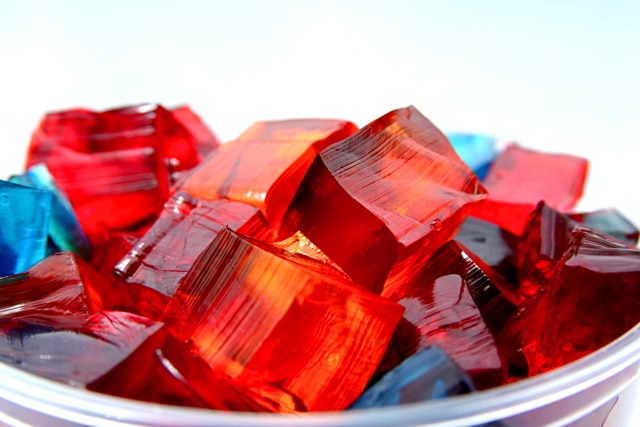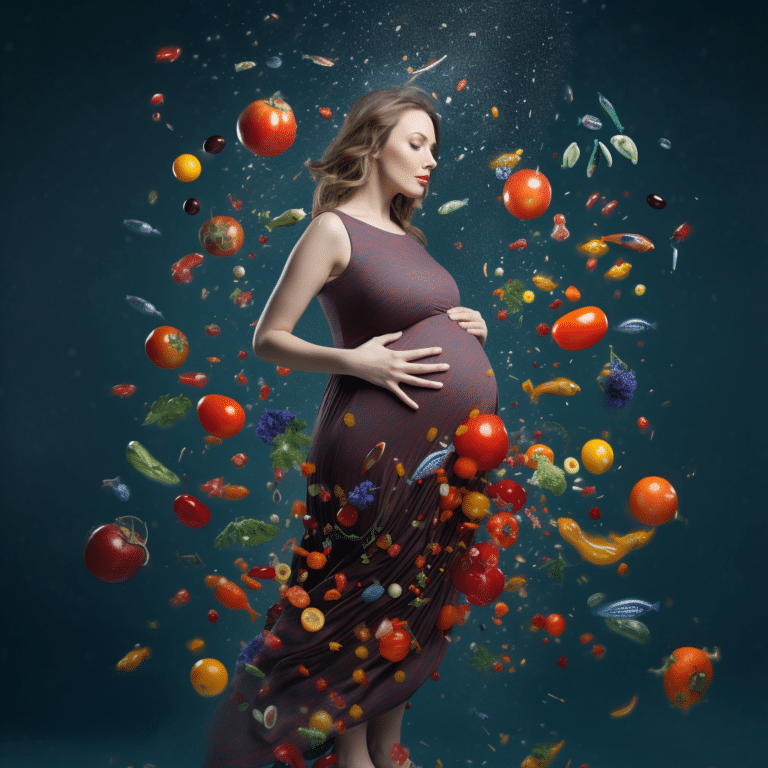Can Babies Eat Jello? Exploring Healthy Food Options
Can babies eat jello: The first six months of your child’s life are very crucial. Your baby relies solely on breast or formula milk without solid foods. And as they grow and begin to eat solid foods, it can be a fun experience for both of you as your kid starts trying new things.
Desserts called jello or jelly are made of gelatin that has been sweetened and flavored. A blend with gelatin and additives is used, or alternatively, gelatin is blended with other components.
Gelatin is dissolved in a hot liquid and mixed with desired flavors, food colors, and other additives like sodium citrate and fumaric acid to make jello. Many kids love jello, but does that mean it’s healthy? Can your baby eat jelly? Stay tuned!
Can Babies Eat Jello?
Yes, babies can eat jello. However, that doesn’t mean they should. For starters, jello is a sugar-rich dessert that provides nothing but empty calories. A high amount of sugar is not recommended for kids as it can cause excessive weight gain or cause dental issues.
Moreover, jello has no nutritional value and is not recommended for kids. Giving your kid jello replaces healthy foods that your baby could have eaten. So, instead of giving your little one jello, offer them healthy snacks like fruits and vegetables.
Jello contains artificial colors and other additives that can negatively affect your child’s health. Some food preservatives have been shown to cause allergies in babies and other respiratory problems. Jello can also get stuck in your child’s airway, leading to choking hazards.
Another reason jello is terrible for your baby is that your child can easily get addicted to it and maybe refuse other foods. Jello’s attractive colors, texture, and high sugar content can make your child refuse other healthy snacks in its preference. This addiction can be challenging, especially if your kid is very young.
Other Food You Should Avoid Giving Your Baby
Babies are fragile and should be given foods rich in nutrients to ensure healthy growth and development. Here are other bad foods you shouldn’t give your baby:
Sweetened Beverages Or Fruit Juice
Beverages like sports drinks and soda are not recommended for kids below one year. That’s because they are loaded with sugar and other additives that may harm your child’s health.
Even 100% fruit juice contains high amounts of sugar with little nutritional benefits, as most fruits’ nutrients are denatured during processing. Excessive sugar consumption is dangerous as it can lead to tooth decay and excessive weight gain.
Unpasteurized Foods
Avoid giving your baby unpasteurized foods like cheese, dairy milk, cider, or cheddar. These foods contain pathogenic bacteria and other parasites that can result in serious health complications in your baby.
Fast Or Processed Foods
Processed foods like biscuits and chocolates are high in calories and sugar. The same is true for fast foods like nuggets and french fries loaded with saturated fats, salts, and calories with no vitamins, minerals, or proteins needed for proper growth and development.
Large Chunky Food
Examples include round foods like popcorn, nuts, candies, whole grapes, hot dogs, and seeds. Such foods pose a risk to infants because they can become lodged in the windpipe.
Honey
They Honey is wonderful with many benefits, including being a natural antibiotic and cough reliever. Which Honey contains clostridium botulinum which can result in life-threatening illnesses in babies.
Healthy Foods To Give Your Baby
Below six months, your baby’s sole nutrition source should be breastmilk or formula milk. After six months, weaning occurs, and your little one can have an array of foods. Here are healthy food options to give your baby:
Soft Fruits
Ripe fruits are soft, making them ideal for small babies. Good examples include bananas, avocados, pawpaws, mangoes, etc. These fruits are delicious and contain natural sugars that sweeten them. Moreover, they contain essential vitamins and minerals needed for nourishment and antioxidants that protect the body from oxidative stress.
Vegetables
Your child should also eat plenty of vegetables because they are very healthy. They are full of nutrients such as antioxidants and vitamins that your body needs to grow and stay healthy. Vegetables have a high fiber content, which aids digestion and prevents constipation.
You can add carrots to your child’s diet because they are a great food that is safe for babies.
Pasta
Pasta is a good complex carbohydrate providing energy and satiety to your baby. It’s low in fat, simple to digest, and adaptable to your infant’s favorite seasonings.
Fish
Fish is another healthy food worth including in your baby’s diet. It’s a good source of protein, vitamins, and minerals. It also contains omega-3 fatty acids needed for the healthy development of the brain and eye.
When preparing fish, remember to soften it before feeding your baby. This way, it becomes easier for your baby’s stomach to digest.
Eggs
Eggs provide a complete meal with beneficial proteins and minerals. It’s one of the healthiest diets you can offer your baby. The good thing with eggs is that there are many ways of preparing them. You can boil and season them with salt and black pepper, scramble in a frying pan with oil, or poach them.
Yogurt
It’s full of proteins, essential vitamins, and minerals and contains probiotics that promote healthy digestion. With yogurt, there are many flavors to choose from. So, even picky eaters can get one to their liking.
Conclusion
Can eat babies eat jello? Yes, they can. Should they? Because it’s full of empty calories and sugars and serves no useful purpose. It’s not a good idea to give babies a lot of sugar because it speeds up their tooth and fat development.
Jello also contains additives and preservatives that can cause serious health consequences to your baby. Moreover, offering your baby jello regularly can lead to a jelly addiction. This can make your kid refuse other foods in preference to jello.





